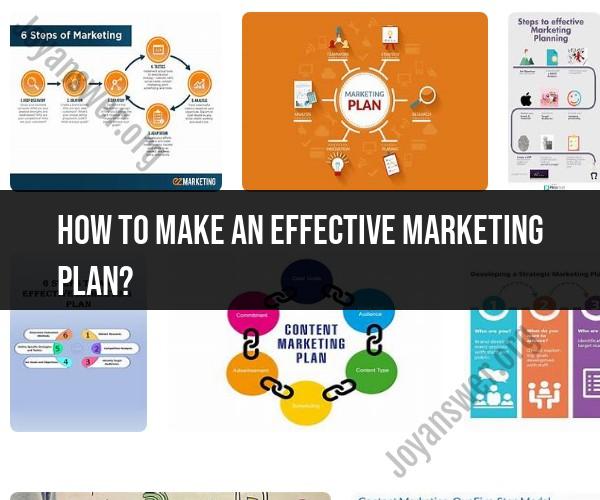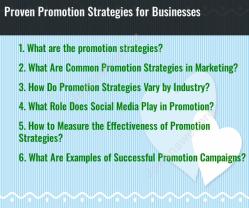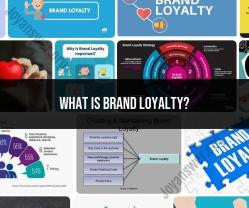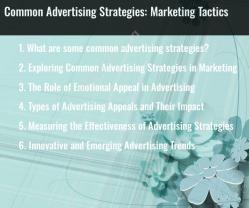How to make an effective marketing plan?
Creating an effective marketing plan is essential for guiding your marketing efforts and achieving your business goals. Here are the steps and strategies to help you develop a successful marketing plan:
1. Set Clear Objectives:
- Begin by defining your marketing objectives. What do you want to achieve through your marketing efforts? Your objectives should be specific, measurable, achievable, relevant, and time-bound (SMART).
2. Know Your Target Audience:
- Identify and understand your target audience. Create detailed buyer personas that outline their demographics, preferences, pain points, and behaviors.
3. Conduct Market Research:
- Gather information about your industry, competitors, and market trends. Analyze market data to identify opportunities and threats.
4. SWOT Analysis:
- Perform a SWOT analysis (Strengths, Weaknesses, Opportunities, Threats) to assess your internal capabilities and external factors that may impact your marketing.
5. Define Your Unique Selling Proposition (USP):
- Determine what sets your products or services apart from the competition. Your USP should be a compelling reason for customers to choose your offerings.
6. Develop Marketing Strategies:
- Create strategies for reaching your target audience. Consider various marketing channels, such as content marketing, social media, email marketing, paid advertising, and SEO.
7. Set a Budget:
- Allocate a budget for your marketing plan. Ensure that your budget aligns with your objectives and chosen marketing strategies.
8. Choose Marketing Tactics:
- Specify the tactics you will use to execute your marketing strategies. For example, if content marketing is a strategy, tactics may include blog posts, ebooks, and videos.
9. Create a Content Calendar:
- If content marketing is part of your plan, create a content calendar that outlines the topics, publishing schedule, and responsible team members.
10. Develop Key Messages:- Craft compelling and consistent key messages that resonate with your target audience. These messages should highlight your USP and address customer pain points.
11. Design Marketing Materials:- Create marketing materials, such as brochures, ads, social media graphics, and landing pages, that align with your brand and key messages.
12. Implement Tracking and Analytics:- Set up tracking tools and analytics to monitor the performance of your marketing campaigns. Measure key performance indicators (KPIs) relevant to your objectives.
13. Test and Iterate:- Continuously test different marketing strategies and tactics to see what works best. Use A/B testing to optimize campaigns for better results.
14. Monitor and Adjust:- Regularly review the performance of your marketing efforts and make adjustments as needed. Be responsive to changes in market conditions and customer behavior.
15. Evaluate ROI:- Calculate the return on investment (ROI) for your marketing campaigns. Determine which strategies are delivering the best results and adjust your budget accordingly.
16. Create a Timeline:- Develop a timeline that outlines when each marketing activity will take place. Ensure that deadlines are met to keep your marketing plan on track.
17. Integrate Marketing Channels:- Create a cohesive marketing strategy by integrating various channels and tactics to provide a unified brand experience for customers.
18. Plan for Contingencies:- Anticipate potential challenges and develop contingency plans to address them. Having backup strategies in place can help you adapt to unexpected situations.
19. Communicate Internally:- Ensure that your team members are aware of the marketing plan and their roles in executing it. Effective communication is key to successful implementation.
20. Review and Refine:- Regularly review and refine your marketing plan as your business evolves and market conditions change. Ensure that it remains aligned with your overall business strategy.
A well-executed marketing plan can be a powerful tool for achieving your business objectives, reaching your target audience, and building brand awareness. Keep your plan flexible and adaptable, and be prepared to make adjustments based on real-world results and feedback.
Crafting an Effective Marketing Plan: Essential Steps
Here are some essential steps for crafting an effective marketing plan:
- Define your goals. What do you want to achieve with your marketing efforts? Do you want to increase brand awareness, generate leads, or drive sales? Once you know your goals, you can start to develop strategies to achieve them.
- Identify your target market. Who are you trying to reach with your marketing messages? What are their needs and wants? Once you know your target market, you can tailor your marketing messages to their specific needs.
- Analyze the competition. Who are your competitors? What are they doing well? What could they be doing better? Understanding your competition can help you to develop unique selling propositions and to position your brand in the market.
- Develop marketing strategies. How will you reach your target market? What marketing channels will you use? What kind of content will you create? Once you have developed your marketing strategies, you can start to create a budget and a timeline for your marketing campaigns.
- Track your progress. It's important to track your progress against your goals so that you can see what's working and what's not. This information can help you to make necessary adjustments to your marketing plan.
Marketing Success Blueprint: Creating an Effective Plan
Here are some additional tips for creating an effective marketing plan:
- Be specific. When setting your goals, be as specific as possible. For example, instead of saying "I want to increase brand awareness," say "I want to increase brand awareness by 10% in the next quarter."
- Be realistic. When setting your goals, it's important to be realistic. Don't set goals that are too ambitious or too easy.
- Be measurable. When setting your goals, make sure that they are measurable. This will help you to track your progress and to see what's working.
- Be flexible. The marketing landscape is constantly changing, so it's important to be flexible with your marketing plan. Be willing to adjust your strategies and tactics as needed.
The Art of Marketing Planning: Strategies for Impact
Here are some strategies for creating a marketing plan that will have impact:
- Focus on your target market. Tailor your marketing messages to the specific needs and wants of your target market.
- Create valuable content. Your content should be informative, engaging, and relevant to your target market.
- Use multiple marketing channels. Don't just focus on one marketing channel. Use a variety of channels to reach your target market.
- Be consistent. Be consistent with your marketing efforts. Don't just start a marketing campaign and then abandon it.
- Measure your results. Track your progress against your goals and make necessary adjustments to your marketing plan.
By following these tips, you can craft an effective marketing plan that will help you to achieve your marketing goals.











